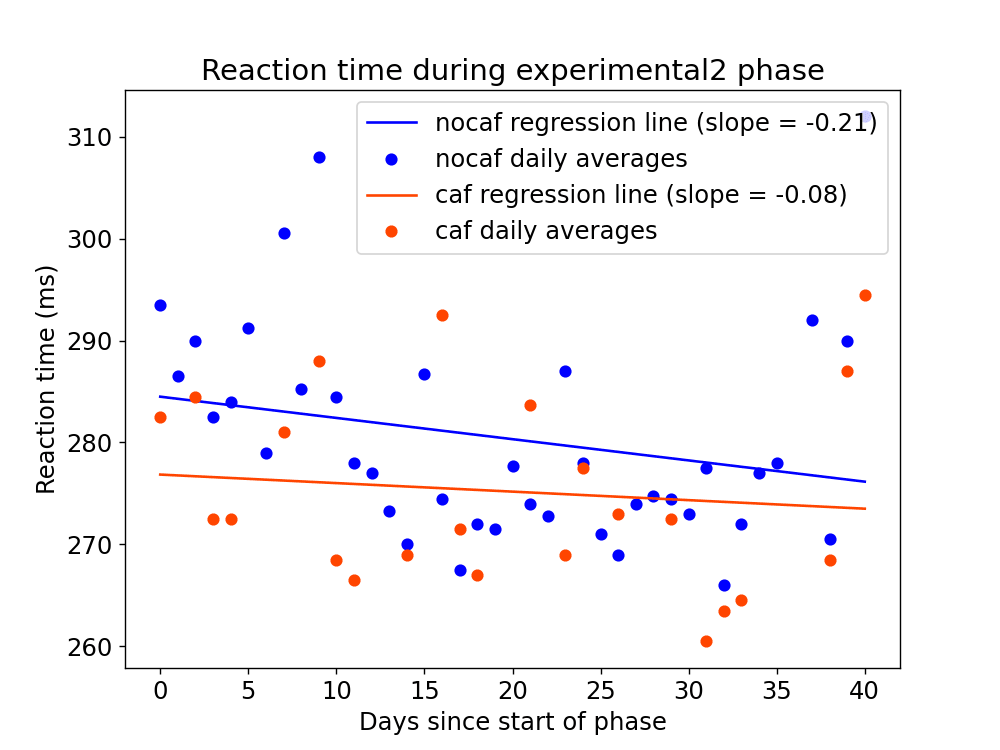I'm fascinated that caffeine is so well-established (the most popular drug?) and yet these kinds of self-experiments still seem to add value over the scientific literature.
Anyway, I have a suspicion that tolerance builds at different rates for different effects. For example, if you haven't had any caffeine in a long time (like months), it seems to create a strong sense of euphoria. But this seems to fade very quickly. Similarly, with prescription stimulants, people claim that tolerance to physical effects happens gradually, but full tolerance never develops for the effect on executive function. (Though I don't think there are any long-term experiments to prove this.)
These different tolerances are a bit hard to understand mechanistically: Doesn't caffeine only affect adenosine receptors? Maybe the body also adapts at different places further down the causal chain.
I've been running a bunch of experiments on this myself and I think it's true that if you don't go above doing it every other day on average you don't get addicted. You still get homeostasis effects of being more tired (more adenocine receptors) without coffee. I think it's therefore a very good positive reinforcer for productive behaviour, especially if used strategically.
which makes me suspicious of the experiment’s findings.
Thank you for this post! Regarding the effectiveness going up, I think this is right. I don't have an exact resource to back up this claim (probably mentioned in this episode), but I am quite sure that Huberman mentioned that regular caffeine consumption increases the amount of dopamine receptors in one's brain, which allows more dopamine to bind. I am not confident on my explanation here, but I just wanted to share an idea based on what I have heard.
This outcome is statistically significant (p = 0.016), but the data show a weird pattern: caffeine’s effectiveness went up over time instead of staying flat. I don’t know how to explain that, which makes me suspicious of the experiment’s findings.
Something something you adapt to a ~constant effect of the substance, thus learning to leverage it better?
Well, ok this doesn't explain why his reaction time without caffeine also improved (and even more so than with caffeine) but perhaps this could be explained by something like: caffeine increases the efficiency of some circuits, reaction time tests/exercises sculpt those circuits and sculpt them even more when on caffeine and some of that sculpting persists even when not on caffeine. (speculating ofc)

Michael Dickens has read the research and performed two self-experiments on whether consuming caffeine builds up tolerance, and if yes, how quickly.
First literature review:
Second literature review:
First experiment:
Second experiment: